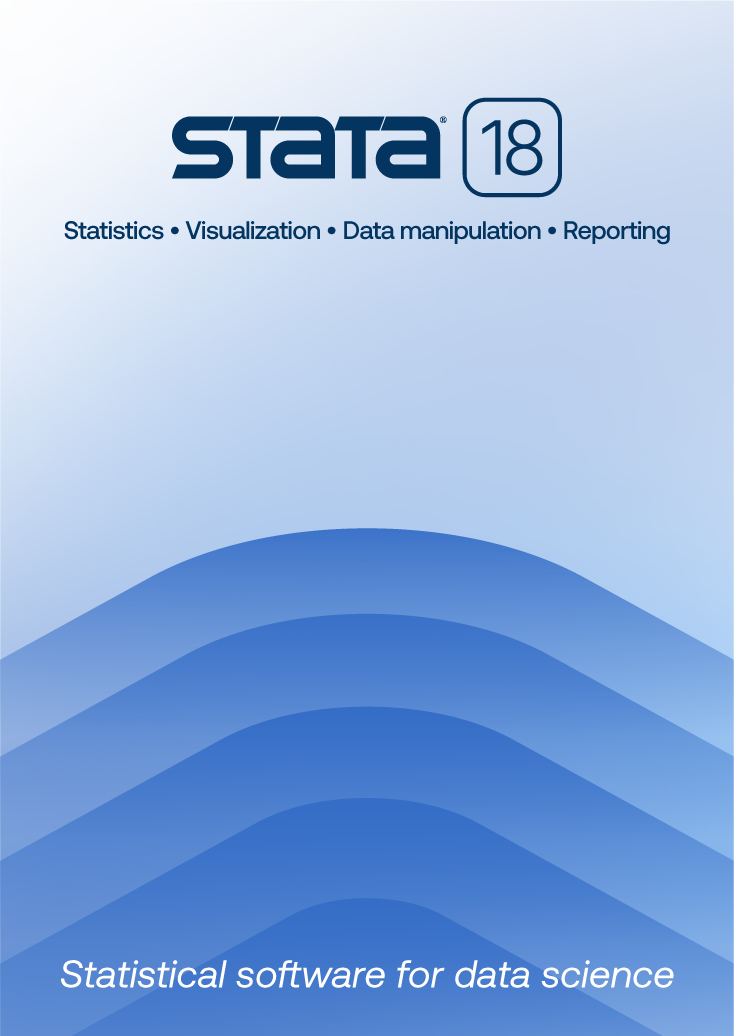
Enjoy insightful and informative presentations by these experienced Stata users in the field.

Christopher Frank Parmeter
Miami Herber Business School, University of Miami

Vincenzo Verardi
LouRIM-LSM at UC Louvain

Peter Hull
Brown University

Yiru Wang
University of Pittsburgh

Carolina Caetano
University of Georgia

Zhuan Pei
Cornell University

Alyssa Carlson
University of Missouri-Columbia
All times Central Standard Time
8:30 a.m.
The Xistence of Inefficiency: Lasso + SFA
Christopher Frank Parmeter, Miami Herber Business School, University of Miami
View abstract
Additional information:
Econ24_Parmeter.pdf
We revisit the classic debate between Leibenstein (1966) and Stigler (1976) about the notion of inefficiency of economic agents---whether it exists and if and how it can be explained via some economic variables in practice. Unlike the original debate of Stigler and Leibenstein, our articulation of this topic is based on a modern statistical approach. Specifically, we try to obtain insights into the problem of observing (or not observing) inefficiency in the presence of a high number of conditioning (or so-called `environmental') variables. We focus on the postsingle lasso and postdouble lasso under different scenarios.
9:30 a.m.
Efficient estimation of regression models with spillovers: flexible parametric and semi-parametric approaches
Vincenzo Verardi, LouRIM-LSM at UC Louvain, Belgium
Joint work with: Nicolas Debarsy, CNRS, Lille & Catherine Vermandele, ULB, Brussels
View abstract
Additional information:
Econ24_Verardi.pdf
In this presentation, we explore alternative methods for efficiently fitting regression models with spillover effects, which cannot typically be handled by ordinary least squares because of the simultaneity caused by interactions between individuals. Common estimation methods, such as two-stage least squares, generalized method of moments, or (quasi)maximum likelihood, are widely used but may not be the most efficient except in some specific cases. To address this, we propose two approaches, both based on Le Cam’s local asymptotic normality (LAN) theory but differing in how they handle the error distribution. The first is a semiparametrically efficient estimator based on residual ranks and signs that requires only strong unimodality of the error distribution. The second is a parametric estimator designed to account for skewness and heavy tails, using flexible distributions such as Tukey’s g-and-h and Pewsey and Jones’ sinh-arcsinh. Both estimators perform well in Monte Carlo simulations, frequently outperforming commonly used estimators. Finally, we demonstrate the practical implications of our approach with a trade regression from Behrens et al. (2012), illustrating how empirical results can change significantly when Gaussian assumptions are relaxed.
10:30 a.m.
Causal inference with formula instruments
Peter Hull, Brown University
View abstract
Additional information:
Econ24_Hull.pdf
Many studies use instruments or treatments that combine a set of exogenous shocks with other predetermined variables via a known formula. Examples include shift-share instruments and measures of social or spatial spillovers. I review recent econometric tools for this setting that leverage the assignment process of the exogenous shocks and the structure of the formula for identification. I compare this design-based approach with conventional estimation strategies based on conditional unconfoundedness and contrast it with alternative strategies that leverage a model for unobservables.
11:30 a.m.
Parameter path estimation in unstable environments: The tvpreg command
Yiru Wang, University of Pittsburgh
View abstract
Additional information:
Econ24_Wang.pdf
This article introduces a novel command, tvpreg, that implements the following path estimators: (i) the asymptotically weighted average risk minimizing path estimators by Müller and Petalas, 2010, Review of Economic Studies 77: 1508–1539; (ii) and the path estimators proposed in Inoue, Rossi, and Wang, 2024, Journal of Econometrics: 105726, namely, the time-varying parameter local projections, the time-varying parameter instrumental-variables estimator, and the version of the latter estimator robust to weak instruments.
12:30 p.m.
Lunch
1:30 p.m.
Bunching identification strategies
Carolina Caetano, University of Georgia
View abstract
Additional information:
Econ24_Caetano.pdf
This talk gives an overview of the existing strategies for identification of causal effects in models with endogeneity that leverage bunching in the treatment variable. It covers some of the most user-friendly estimators, some strategies for robustness analysis, and a light discussion of the most recent nonparametric methods for identification of local effects.
2:30 p.m.
Supercompliers
Zhuan Pei, Cornell University
View abstract
Additional information:
Econ24_Pei.pdf
In a binary-treatment instrumental-variables framework, we define supercompliers as the subpopulation whose treatment takeup positively responds to eligibility and whose outcome positively responds to takeup. Supercompliers are the only subpopulation to benefit from treatment eligibility and, hence, are of great policy interest. Given a set of jointly testable assumptions and a binary outcome, we can completely identify the characteristics of supercompliers. Specifically, we require the standard assumptions from the local average treatment effect literature along with an outcome monotonicity assumption (i.e., treatment is weakly beneficial). We can estimate and conduct inference on supercomplier characteristics using standard instrumental-variables regression.
3:30 p.m.
Heteroskedasticity and heterogeneity in sample-selection models
Alyssa Carlson, University of Missouri-Columbia
View abstract
Additional information:
Econ24_Carlson.pdf
This presentation provides a practical guide for Stata users on the consequences of heteroskedasticity and heterogeneity in sample-selection models and estimators. First, we review the consequences of heteroskedasticity in the outcome equation, highlighting when standard sample-selection estimators are and are not consistent and how to obtain valid inference using the gtsheckman command. Given the strong implications of heteroskedasticity, we propose three tests to determine if and what type of heteroskedasticity is present. Next we consider the case of heteroskedasticity in both the outcome and sample-selection equation, again utilizing the gtsheckman command to implement a general control function approach. Finally, we extend to the panel-data setting, where we show how the same methods introduced earlier provide consistent estimation of panel-data sample-selection models that incorporate individual heterogeneity in both the intercept and the slopes.
4:30 p.m.
Adjourn
